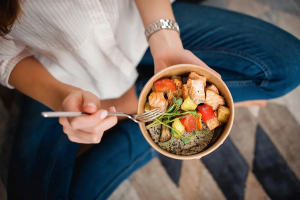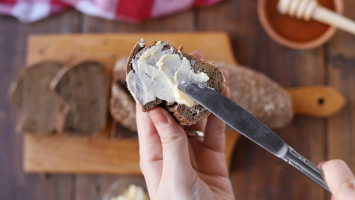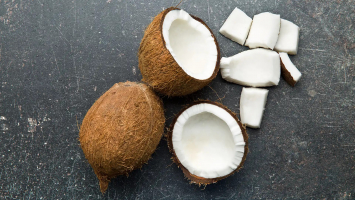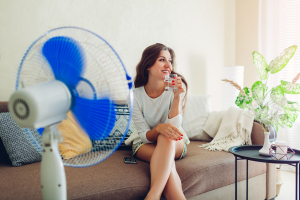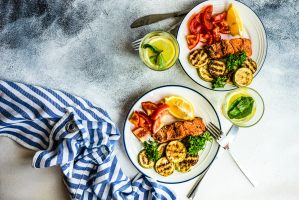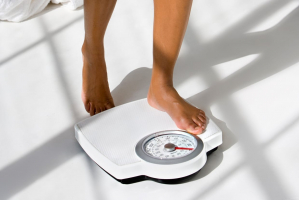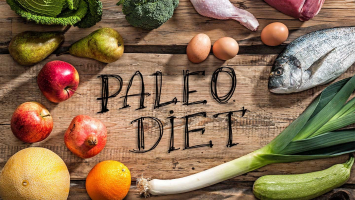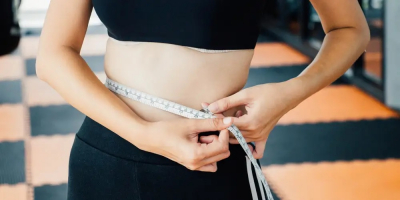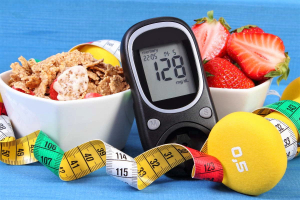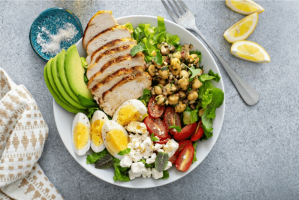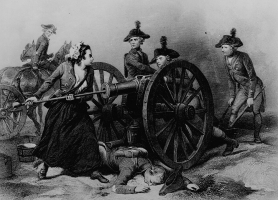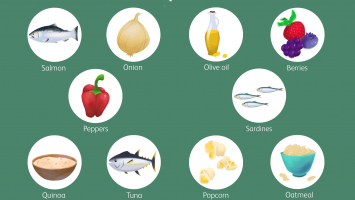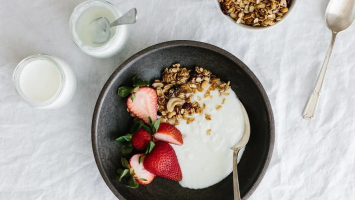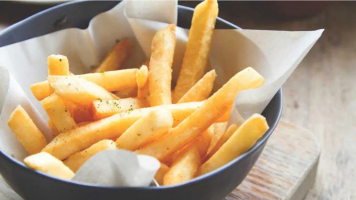Top 10 Tips to Avoid Weight Gain During the Holidays
Holidays, regardless of the time of year, may therefore be one of the main causes of your annual weight increase. Different seasonal holidays could encourage ... read more...overeating, sitting around, and eating foods high in calories. However, gaining weight over the holidays is not a concern if you follow these tips below. Here are some suggestions to help you avoid gaining weight throughout the holiday season.
-
More exercise increases the number of calories your body "burns off" or uses as energy when trying to lose weight. A "calorie deficit" that leads to weight loss is achieved when you burn calories through physical exercise while also eating fewer calories altogether.
Many families have Christmas traditions that involve engaging in sedentary activities like watching TV while curled up on the couch. When combined with overeating, inactivity can lead to weight gain. Participating in physical activity with family can help you manage your weight. You can stop thinking about eating and spending time with your loved ones by engaging in something as simple as a family walk. By enrolling in a workplace or community fitness event, you can also stay active over the holidays. Races are a common choice.
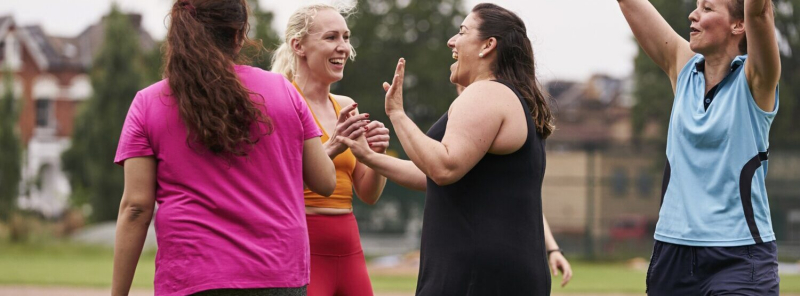
Be active with family and friends 
Be active with family and friends -
Snacking refers to the intake of foods during the day other than your main meals. It's common throughout the holiday season for you to have access to unhealthy snacks like cookies and other sweets. You're more prone to overeat if treats are available easily.
Keeping treats hidden can help with this issue at home. However, it is more challenging in situations you have no control over, like the office or a family gathering. Be conscious of how often you snack. It's better to stop snacking if you find yourself eating simply because there is food nearby rather than because you are actually hungry. However, choose real foods if you're hungry and in need of a snack. Aim for snacks that include protein, fiber, and healthy fats, which help keep you full throughout the day and make healthy choices at your next meal.
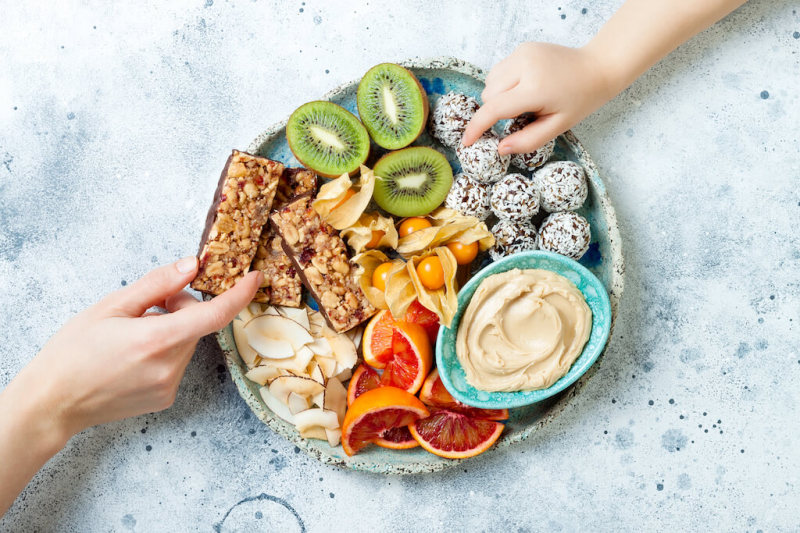
Snack wisely 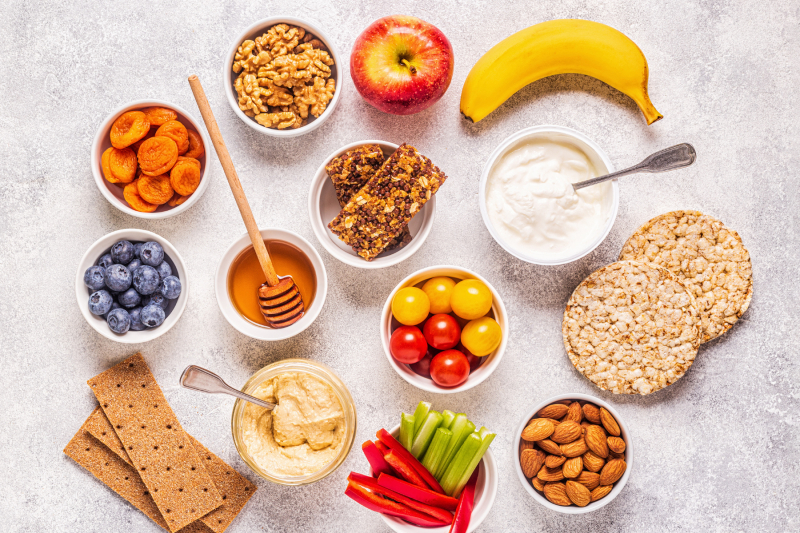
Snack wisely -
It's simple to put too much on your plate when the holidays arrive. People tend to eat almost all of what they serve themselves. Therefore, controlling portion sizes can help prevent overindulging.
Larger servings are typically associated with faster weight gain than smaller meals. Controlling portion sizes or using smaller dishes is the best solution for this. Checking food labels and the suggested serving sizes listed on recipes will help you choose the right portion size. If you are unable to do either, use your best judgment to put enough food on your plate. Or you may lower your risk of overeating by doing things like measuring your food, using smaller dishes, drinking water before meals, and chewing your food thoroughly. Shortly, portion control is a simple solution that enhances your lifestyle and could help you avoid bingeing.
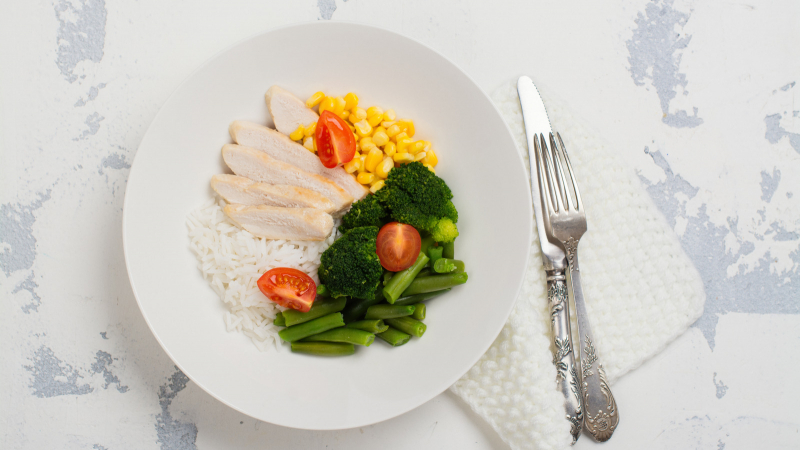
Watch your portion sizes 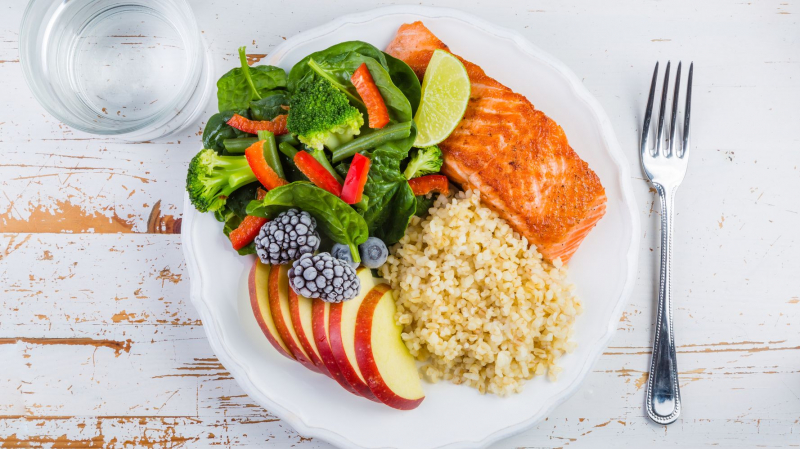
Watch your portion sizes -
Over the Christmas season, people tend to be in a rush, which frequently results in multitasking while eating. According to studies, people who eat while distracted are more prone to overeat. This is a result of their inability to pay attention to their body's fullness cues. Reduce distractions, such as work and other devices, while eating, to avoid this.
Mindful eating is a technique that helps you gain control over your eating habits. It has been shown to promote weight loss, reduce binge eating, and help you feel better. Mindful eating is about developing awareness of your experiences, physical cues, and feelings about food. Start by trying to chew slowly and thoroughly so that you may more easily detect your body's fullness cues and eat less food. Taking a few long, deep breaths before you eat can also be beneficial. By doing so, you may feel more focused on the plate rather than on your to-do list.
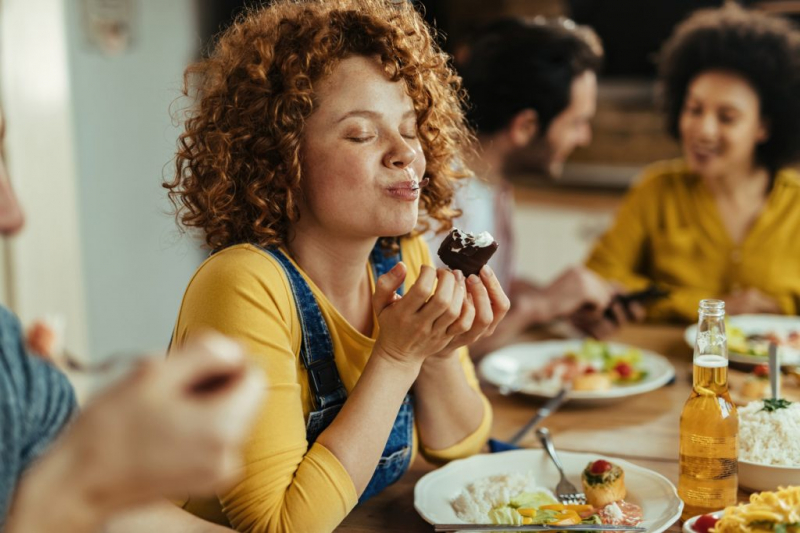
Practice mindful eating 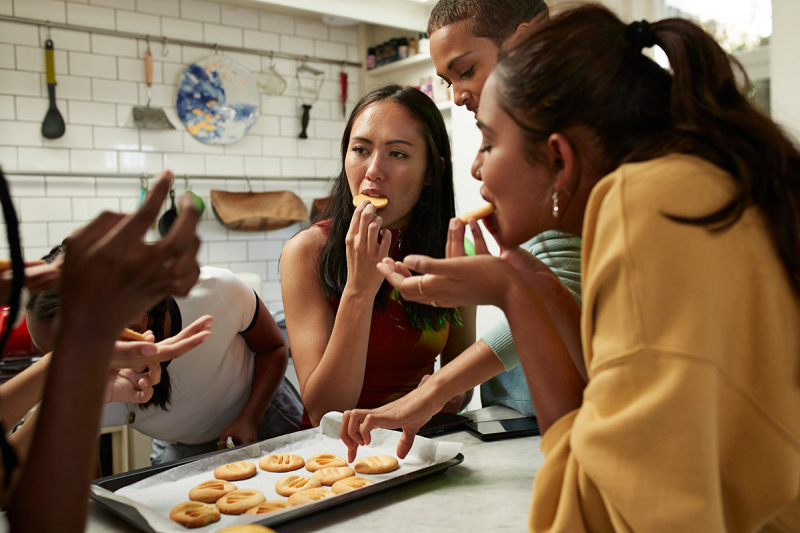
Practice mindful eating -
Short sleep, usually defined as fewer than 6–7 hours, has been repeatedly linked to a higher body mass index (BMI) and weight gain. Adults who slept fewer than 7 hours per night had a 41% greater risk of obesity, according to one study of 20 trials involving 300,000 participants. In contrast, those who slept more did not see an increase in obesity (7–9 hours per night)
Overeating may result from sleep deprivation, which is quite common over the holidays. This is because people who get too little sleep often feel more hungry, eat more food, and do less exercise. Limiting your sleep may raise your hunger hormone levels, which will ultimately cause you to consume more calories. Additionally, a reduced metabolism has been linked to sleeplessness. Your circadian rhythm, a biological clock that controls many of your physical activities, may have changed, which could be the cause of this.

Get plenty of sleep 
Get plenty of sleep -
The hormone cortisol, which is released in response to stress, is often found in high concentrations in stressed people. Numerous studies demonstrate how stress and sleep deprivation can result in a rise in cortisol levels. When your body has increased cortisol levels, you may feel more hungry and crave foods high in sugar, calories, and fat.
Furthermore, living a stressful lifestyle may increase your appetite for junk food. Since you might be busy and surrounded by unhealthy foods during the holidays, it's crucial to keep your stress levels under control in general. You can reduce stress using a variety of methods. Deep breathing, yoga, meditation, and exercise are some choices. Your well-being can be greatly impacted by learning to manage stress through exercise, meditation, and food mindfulness. This will help you lose weight effectively in the long term.

Control your stress levels 
Control your stress levels -
Typically, holiday meals are low in protein and high in carbs. However, it's important to include some protein with every meal because it encourages feeling full and may help with weight maintenance. In fact, by lowering hunger and appetite, eating protein with meals may automatically lower calorie intake. Protein also helps you lose weight because it boosts your metabolism and levels of hormones that suppress your hunger.
You should include at least 1 ounce (25–30 g) of protein in each meal to get these weight-management benefits. Because they include all 9 essential amino acids in the perfect ratios that your body requires, animal products are referred to as "complete protein." Dairy, meat, fish, and poultry are some of these. Although plant-based proteins can be combined with those from other plant sources to make complete proteins, they do not contain sufficient amounts of all the required amino acids. High-protein plant foods include foods like beans, lentils, grains, soy, nuts, and seeds.
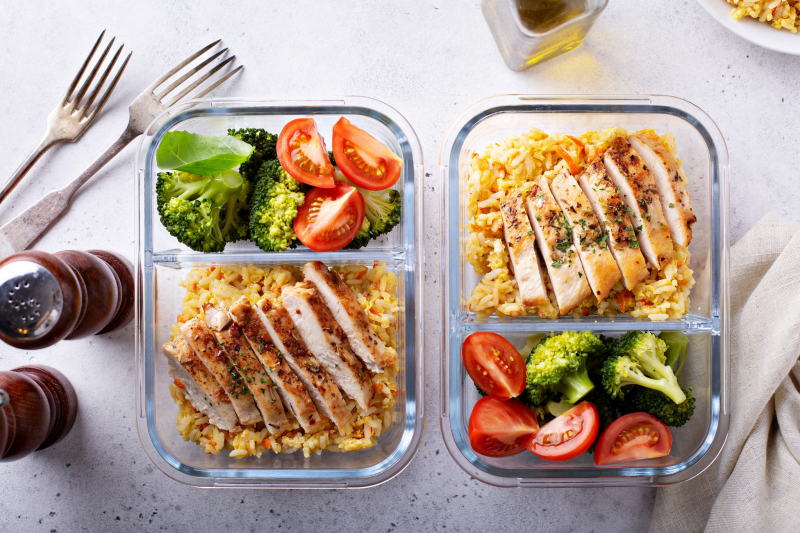
Keep meals balanced with protein 
Keep meals balanced with protein -
Another important nutrient that promotes feeling full is fiber. A balanced diet that includes more heart-healthy fiber has been linked to a number of benefits, including a decreased risk of cancer and chronic disease and improved digestive health. A diet rich in fiber might help people lose weight.
According to some research, increasing dietary fiber can lower caloric consumption overall, which may help people avoid gaining weight during the holidays. Ideally, all or most of the fiber on a high-fiber diet should come from nutrient-rich foods rather than dietary supplements. Unfortunately, insufficient quantities of fiber can be found in many common vacation dishes. Make an effort to consume a variety of fibre-rich foods, such as fruits, vegetables, legumes, whole grains, nuts, and seeds.
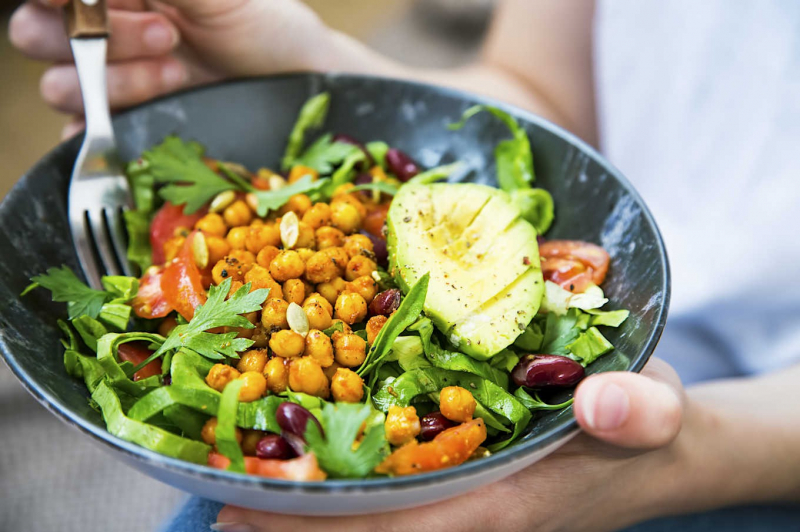
Focus on fiber 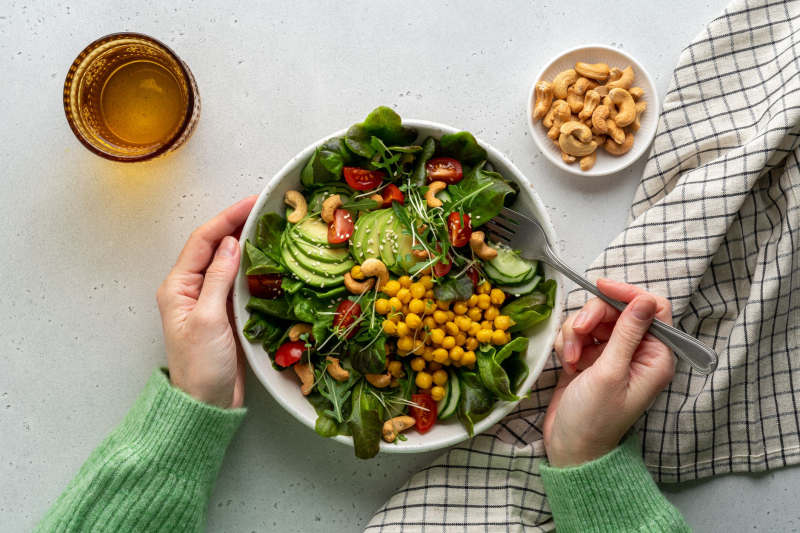
Focus on fiber -
Everything you consume has calories, including drinks, therefore choosing the best weight loss drinks will help you reach your objectives. Some drinks may even increase your appetite and cause you to gain weight.
Alcohol, soda, and other calorie-dense beverages are widely consumed over the holidays. These beverages may significantly increase the quantity of sugar and empty calories in your diet, which may result in weight gain. Additionally, drinking alcohol increases appetite often and increases the risk of weight gain. It's best to minimize your consumption of high-calorie beverages if you're trying to manage your weight. Green tea, coffee, and ginger tea are some beverages that may help enhance metabolism, decrease hunger, and increase satiety, all of which can help with weight loss.
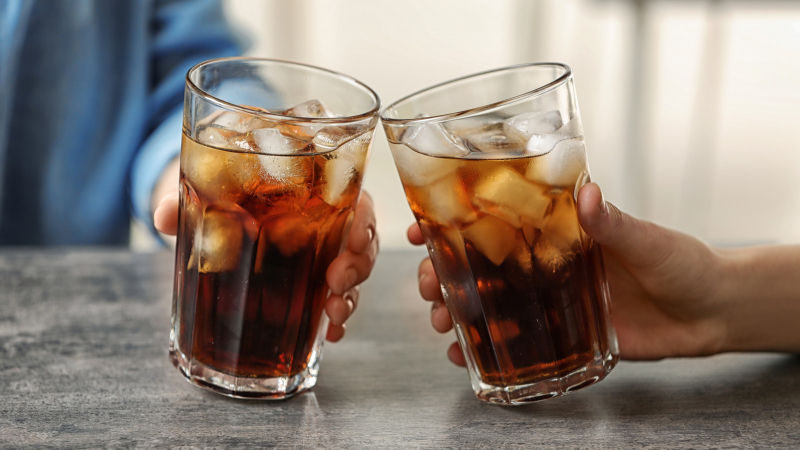
Limit liquid calories 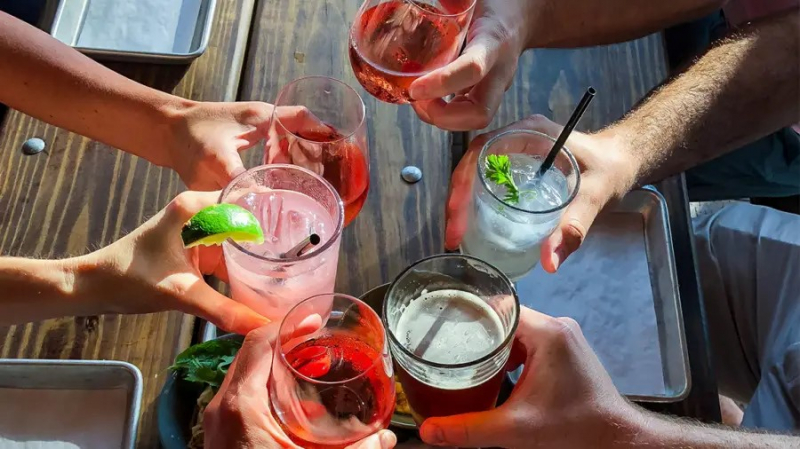
Limit liquid calories -
Weight gain during the holidays is mainly due to high-calorie homemade foods. However, there are numerous ways to reduce a recipe's calorie count that help you have control over what you eat. Bring your own healthy dish to share as one easy tip. By doing this, you may be sure that everything you consume will help you reach your weight-loss objectives.
Here are a few ideas when you to prepare healthy dishes for the party:
- Replace butter with applesauce, mashed banana, or pumpkin puree.
- Instead of sugar, use a lower-calorie substitute such as stevia, erythritol, or xylitol.
- Add dried fruit instead of chocolate chips or candies.
- Flavor dishes with herbs and spices instead of butter.
- Use cooking methods like baking, steaming, or grilling instead of frying.
- Substitute low-fat or skim milk for heavy cream.
- Replace cream cheese, sour cream, and mayo with Greek yogurt.
- ...
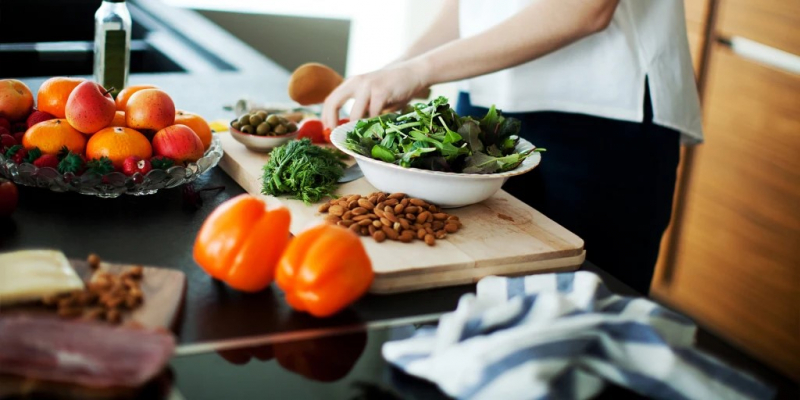
Bring a healthy dish to share 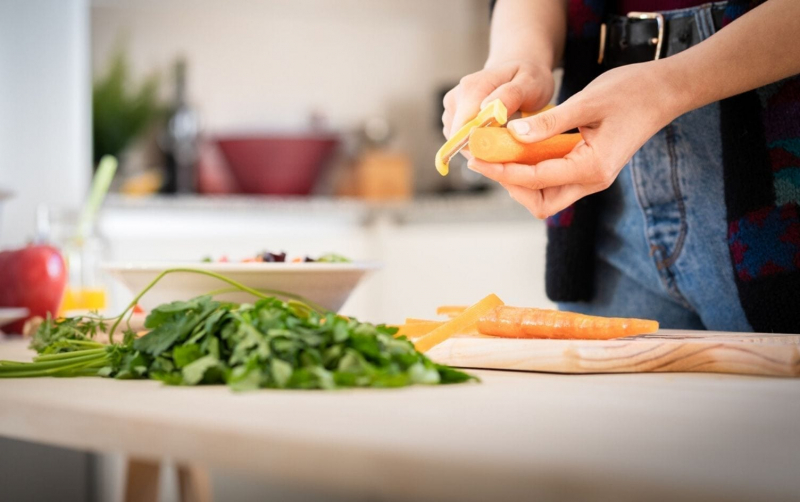
Bring a healthy dish to share












